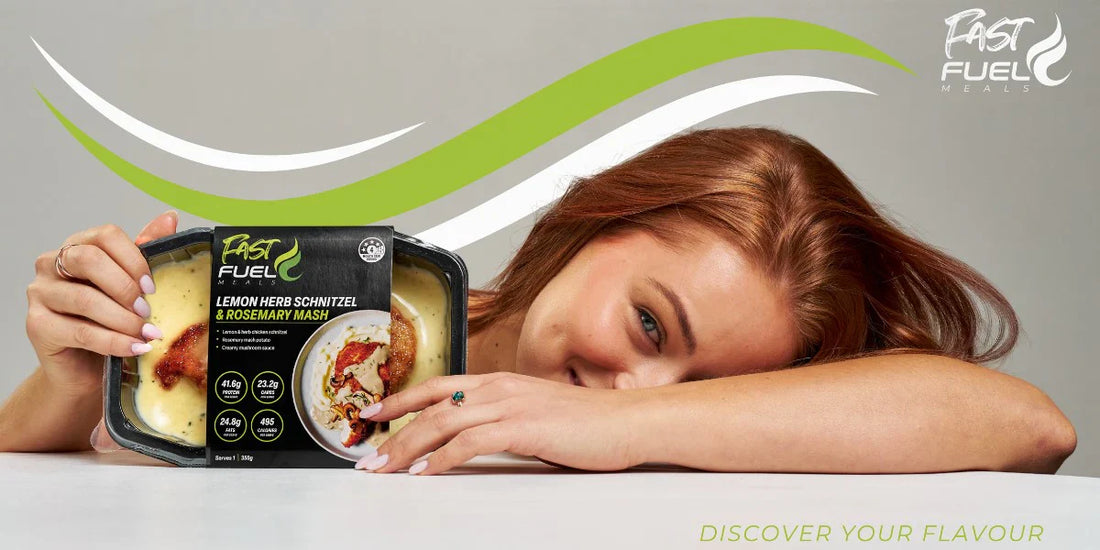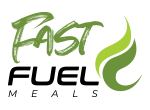
The Importance of Protein For Muscle Mass
Even if you’re clueless about protein and how it influences your body, you must have heard about it at least once, especially if you've ever set foot in a gym or watched a fitness commercial.
In this blog, we’ll break down why protein is so important for muscle mass, how much you really need, and the best sources to include it in your daily diet.
What Is Protein?
One macronutrient that is important for almost all biological processes in the human body is protein.
It comprises long chains of amino acids, which are the building blocks important for the growth, repair, and maintenance of tissues.
There are 20 distinct amino acids, nine of which are considered essential because the body cannot synthesise them; they must be obtained through diet. Protein is vital for the structure of muscles, skin, bones, and organs.
Why Does Your Muscle Need Protein?
Muscle tissue undergoes constant cycles of breakdown and repair, and protein is central to this process.
When you are involved in physical activities, especially resistance training or high-intensity workouts, muscle fibres experience tiny tears.
Protein aids in the fixing and rebuilding of these fibres, a process that results in muscle growth, strength, and enhanced performance.
According to a study by American College, sufficient protein intake post-exercise can significantly improve muscle recovery and growth.
Consuming sufficient protein helps ensure the body remains in a positive nitrogen balance, supporting muscle anabolism (growth) over catabolism (breakdown).
Overall, protein's role in muscle health underscores its importance in athletic performance and overall physical well-being.
What Would Be the Right Amount Of Protein For Your Muscle Mass Building?
Finding the right amount of protein for muscle mass building involves considering various factors such as age, gender, weight, physical activity, and health.
For individuals who regularly perform strength training, the International Society of Sports Nutrition suggests 1.4 to 2.0 grams of protein per kg of your body weight each day.
Additionally, the timing of protein intake can play a crucial role. Consuming protein shortly after exercise, within the so-called "anabolic window," maximises muscle protein synthesis and enhances recovery.
Ultimately, while general guidelines exist, individual needs can vary, and consulting with a nutritionist or dietitian can help tailor protein intake to personal goals and lifestyles.

Sources of Protein In Your Daily Life
- Eggs
Eggs are said to be a gold standard for protein quality because they provide all nine important amino acids in proportions that closely match the body's needs.
A single egg possesses about 6 grams of protein, making it the right way to meet protein requirements. Eggs also include important nutrients such as vitamin B12, choline, and selenium, which support overall health and muscle function.
Studies have shown that the leucine content in eggs, an amino acid pivotal for muscle protein synthesis, makes them particularly effective in promoting muscle growth and recovery.
- Fish
Fish, such as salmon and others, are excellent sources of high-quality protein. They have omega-3 fatty acids, which promote muscle repair and lower inflammation.
As per the American Heart Association, eating fish two times a week can provide these health benefits while also contributing significantly to daily protein needs.
A 100-gram serving of salmon, for instance, offers about 20 grams of protein, making it a powerful ally in muscle-building diets. The omega-3 fatty acids in fish also play a role in muscle protein making and can enhance the body's anabolic response to exercise.
Furthermore, fish is a versatile ingredient that can be easily added to various meals, from salads and sandwiches to main dishes.
- Milk & Yoghurt
Dairy products like milk and yoghurt are high-quality nutrients and protein, such as calcium and vitamin D, which are essential for muscle function. Greek yoghurt, in particular, is a great high-protein option, containing up to 10 grams of protein per 100 grams.
According to the National Dairy Council, dairy proteins, including casein and whey, provide a complete amino acid profile and are highly effective in stimulating muscle protein synthesis.
- Meat
Lean meats are packed with protein and amino acids necessary for muscle repair and growth.
Meat also contains important micronutrients like iron, zinc, and B vitamins, which promote energy production and overall health.
Beef, particularly lean cuts, is not only a good source of protein but also contains creatine, a compound that can enhance muscle performance and endurance.
- Lentils
Lentils are a great addition to a diet that builds muscle because they include fiber and plant-based protein.
A cup of cooked lentils offers around 18 grams of protein, along with nutrients like iron, magnesium, and folate.
According to the Food and Agriculture Organisation, lentils and other legumes offer a significant protein content that can support muscle health, particularly for vegetarians and vegans.
Rich in nutritional fiber and low in fat are lentils, promoting better digestion and overall health. They can be easily added to various dishes, such as soups, stews, salads, and side dishes, providing a versatile and nutritious protein source.
- Peanut Butter
Peanut butter is yet another excellent source of protein and good fats. Two tablespoons of peanut butter offer about 8 grams of protein, making it a great snack option for muscle repair and growth.
It also includes vitamins and minerals like vitamin E, magnesium, and potassium, which support overall health. While peanut butter is higher in calories due to its fat content, the fats are mostly healthy unsaturated fats that can support heart health and energy levels.
Incorporating peanut butter into your diet, whether spread on whole grain bread, added to cold smoothies, or used as a dip for vegetables and fruits, can help meet protein needs and enhance muscle recovery.
The Bottom Line
Having a healthy intake of protein for muscle mass is crucial, but satisfying your cravings with nutritious snack options is equally important. Fast Fuel Meals offers the best chocolate chip cookie dough protein balls as a delicious and protein-packed snack choice.
These protein balls not only curb your cravings but also provide a healthy alternative for snacking. They're prepared to deliver a satisfying taste while supporting your nutritional goals, making them a perfect option for maintaining a balanced diet without compromising on flavor.
Craving a snack? Call Fast Fuel Meals, Sydney's premier meal delivery service – we're here to serve you!
